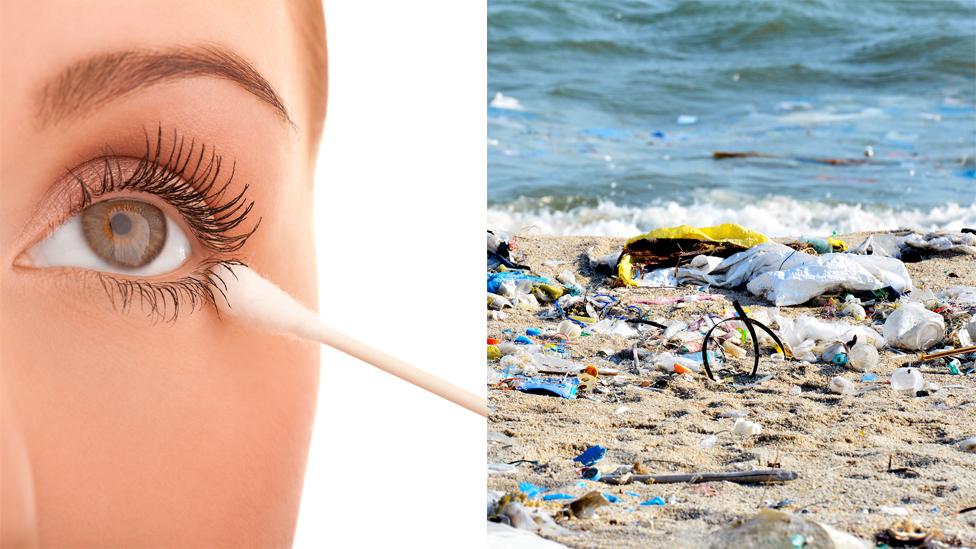Film lifts lid on Great Pacific Garbage Patch voyage
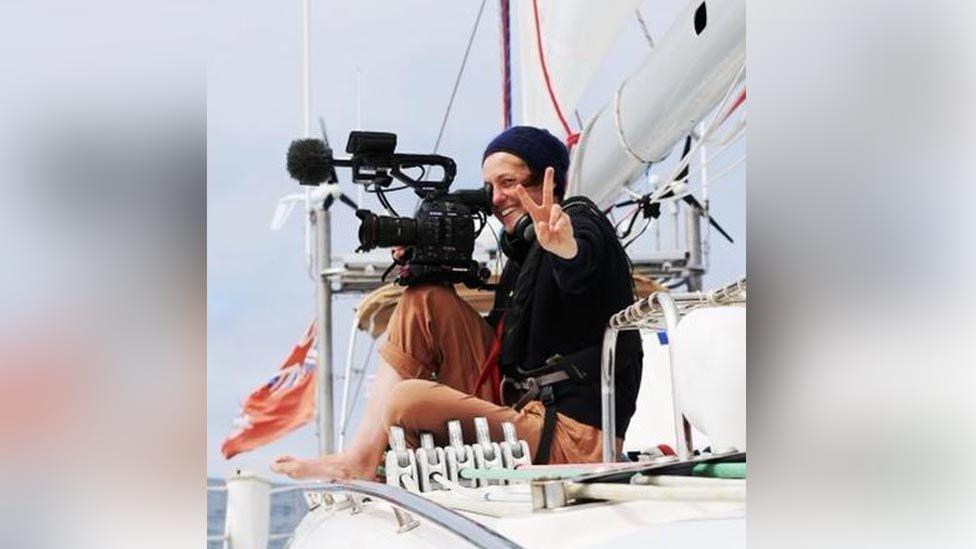
Eleanor Church has been directing films for 20 years
- Published
A documentary about an all-female crew's journey through an area of ocean dubbed "the Great Pacific Garbage Patch" is set for release this month.
Eleanor Church, 41, from Colchester, sailed with 13 other women through the North Pacific Ocean and the densest accumulation of ocean plastic on the planet.
Director Church hopes the film X Trillion will highlight the devastating impact plastic has had on the ocean.
The trip was organised by Exxpedition, which has undertaken a number of voyages to raise awareness of the issue.
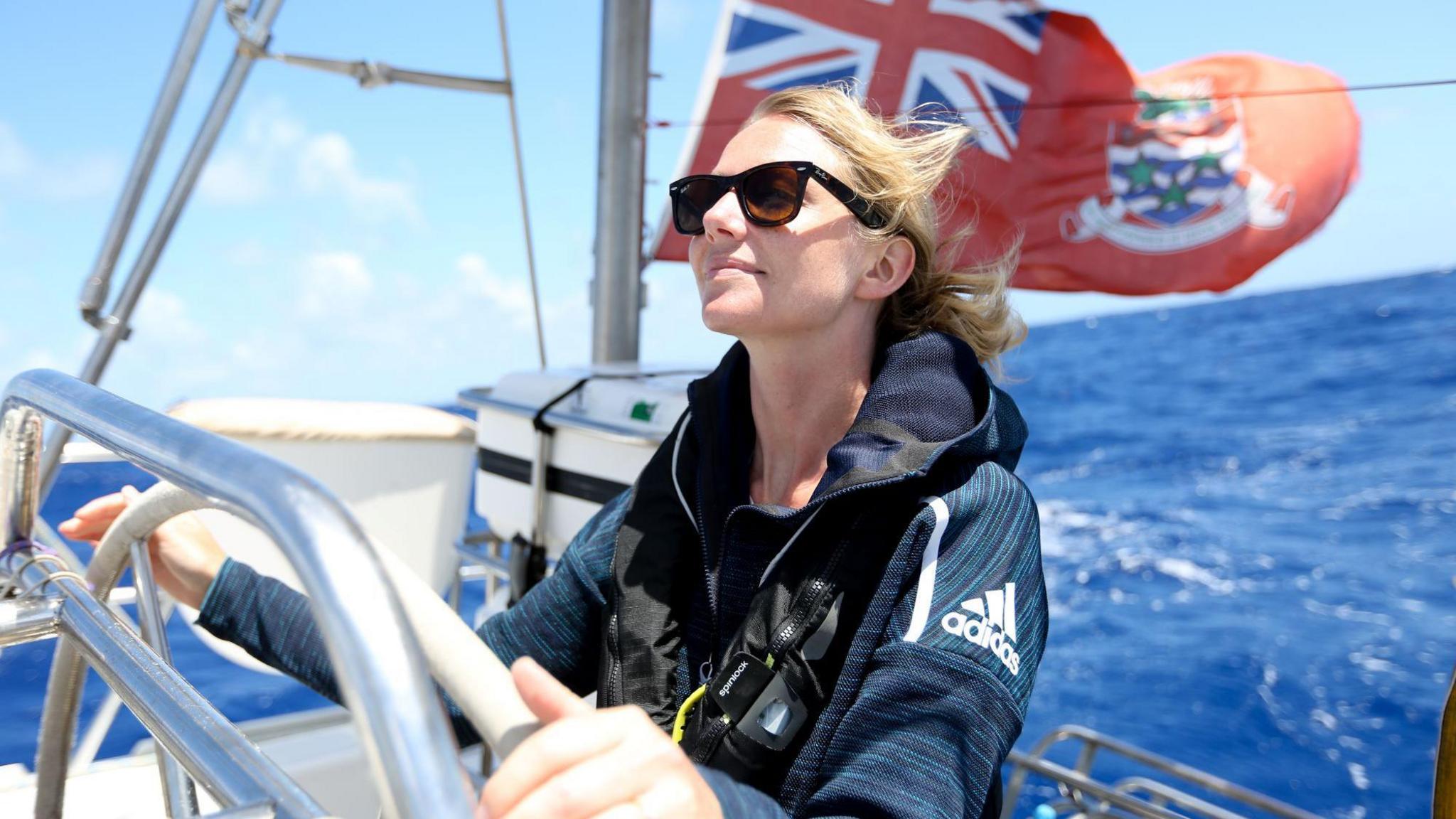
Emily Penn, co-founder of Exxpedition, led the voyage
"The film follows the gruelling journey of Exxpedition's all-women crew, led by Emily Penn," said a spokesperson from the film.
The crew comprised scientists, filmmakers, engineers, teachers, packaging designers, creators and four experienced sailors.
The crew recorded an average of 500,000 pieces of microplastics per square kilometre, and that was only on the surface.
Church said: "This film has been in the making for quite some time - so it is really exciting for it to be finally released."
She said although the expedition took place in 2018, now felt like an appropriate time for the film's release.
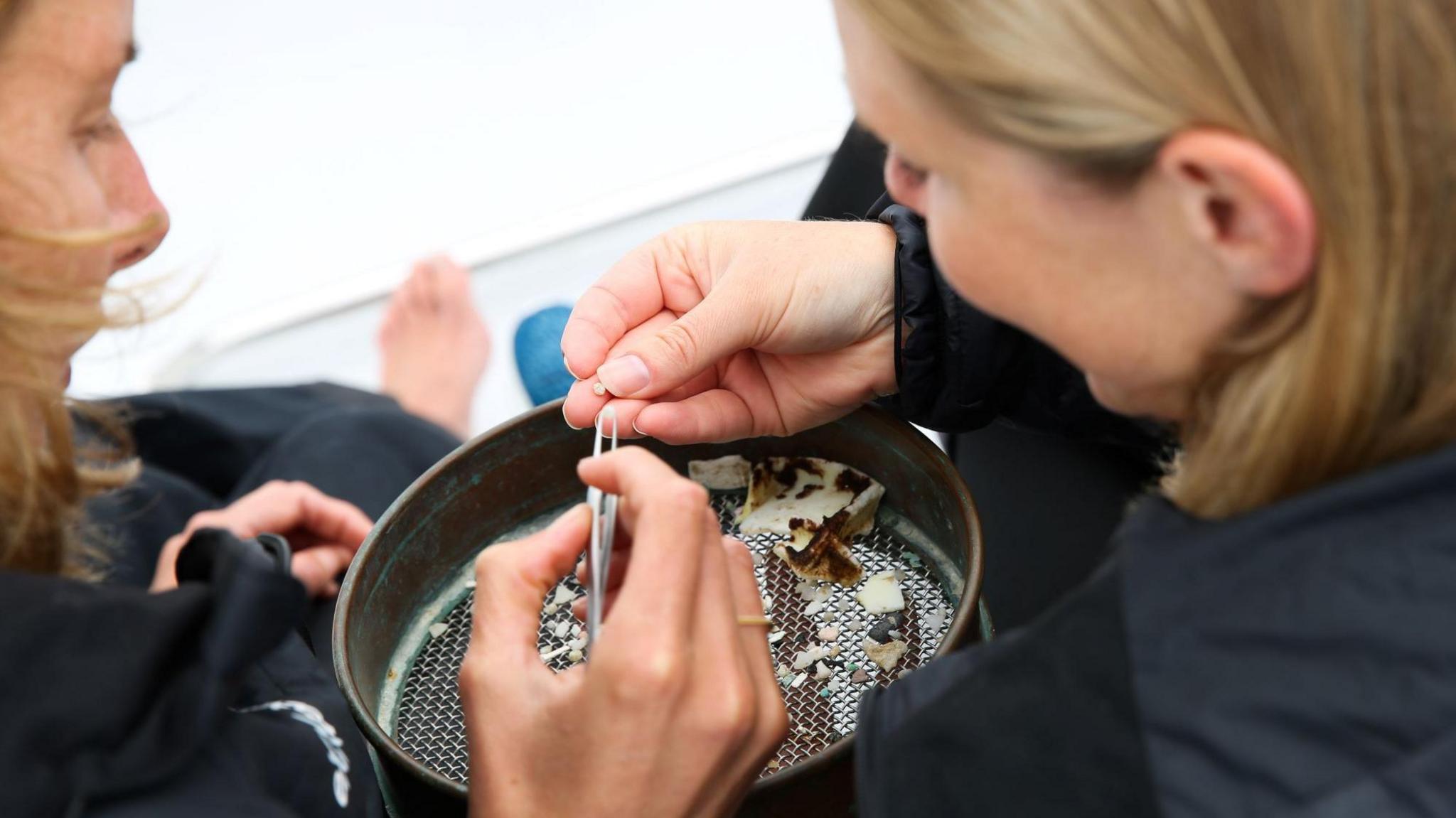
Ms Penn shows crewmate a nurdle (a small lentil-sized piece of plastic) collected from the Great Pacific Garbage Patch
Its premiere will take place later at Curzon Soho, London.
"The film is looking at an optimistic and inspiring way forward," said Church.
"We have this massive issue but we can do something about it and that is what feels really exciting about it."
She said the crew's mission was to witness and record the true extent of the plastic pollution crisis - with a focus on microplastics and their toxic impact on female bodies, in particular.
"As we ingest and accumulate the toxins related to plastics, we can pass then on to our children through childbirth and breastfeeding," she added.
Follow Essex news on Facebook, external, Instagram, external and X, external. Got a story? Email eastofenglandnews@bbc.co.uk, external or WhatsApp us on 0800 169 1830
Related topics
- Published5 December 2021
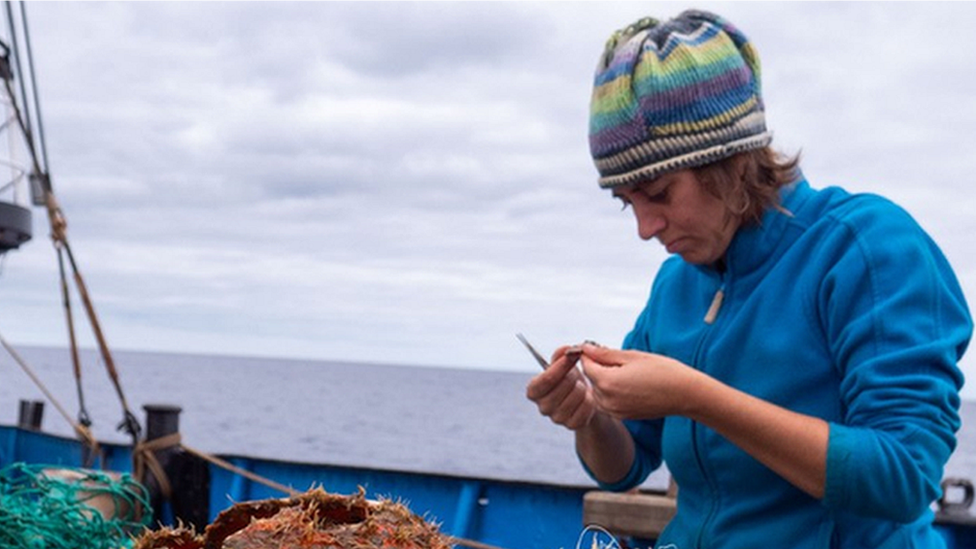
- Published22 March 2018
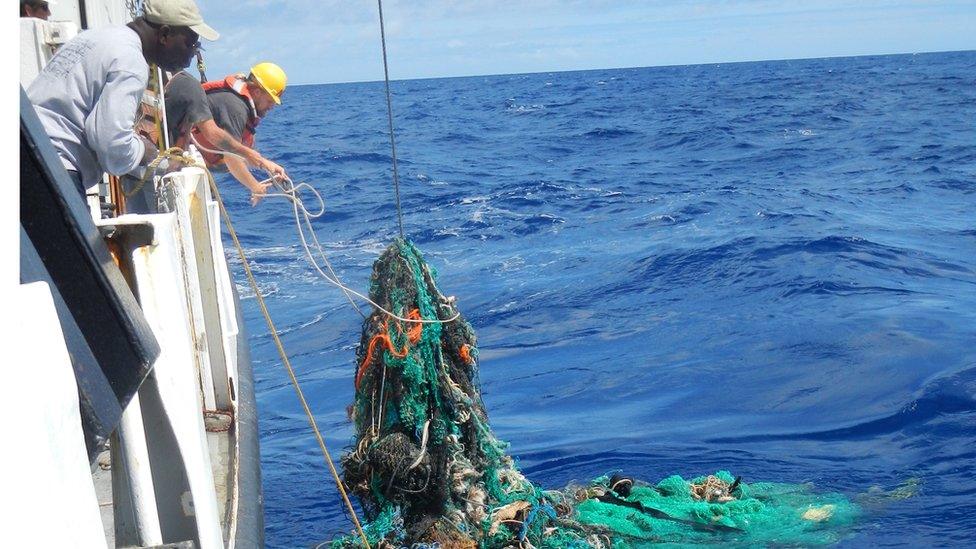
- Published12 May 2018
